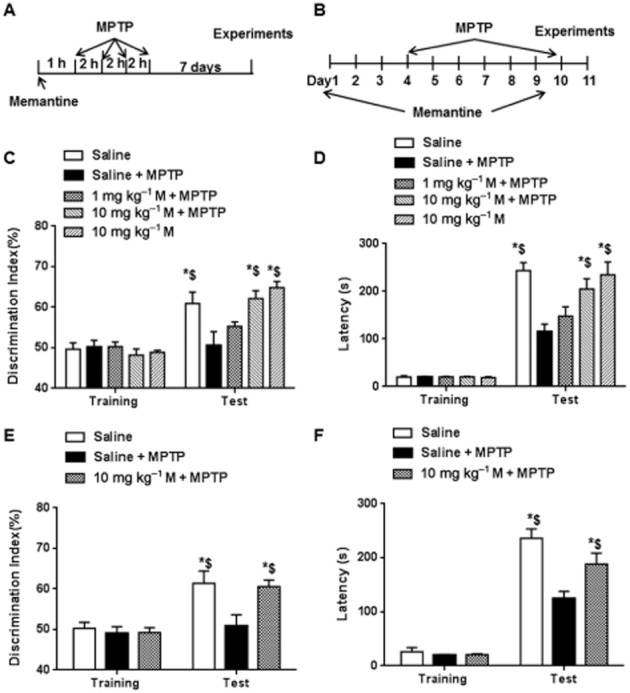Figure 1.

Memantine (M) reversed MPTP-induced impairment of long-term memory. (A) Scheme of the protocol for MPTP-induced acute Parkinson's disease model and memantine treatment. (B) Scheme of the protocol for MPTP-induced subchronic Parkinson's disease model and memantine treatment. (C) Novel object recognition was used to test the memory in acute MPTP model. During training session, preferences to the two objects were not different in each group. However, 24 h memory was significantly decreased in the MPTP group compared with the control. However, it was prevented by pretreatment with a high dose of memantine (10 mg·kg−1, i.p.). (D) One-trial passive avoidance task was used to test the memory. During training session, the latency to dark box was not different in different groups. In the MPTP group, 24 h memory was significantly decreased compared with control. However, it was prevented by high dose of memantine treatment. (E) Novel object recognition was used to test the memory in subchronic MPTP model. During training session, preferences to the two objects were not different in each group. In the MPTP group, 24 h memory was significantly decreased compared with the control and this decrease was prevented by the high dose of memantine, as consecutive treatment. (F) One-trial passive avoidance task was used to test the memory in subchronic MPTP model. During training session, the latency to dark box was not different in different groups. In the MPTP group, 24 h memory was significantly decreased compared with control and this decrease was reversed by the high dose of memantine, as consecutive administration. The data presented are means ± SEM (n = 5). *P < 0.05, compared with corresponding level at training session; $P < 0.05 compared with the value in MPTP group; two-way anova followed by Bonferroni test.
